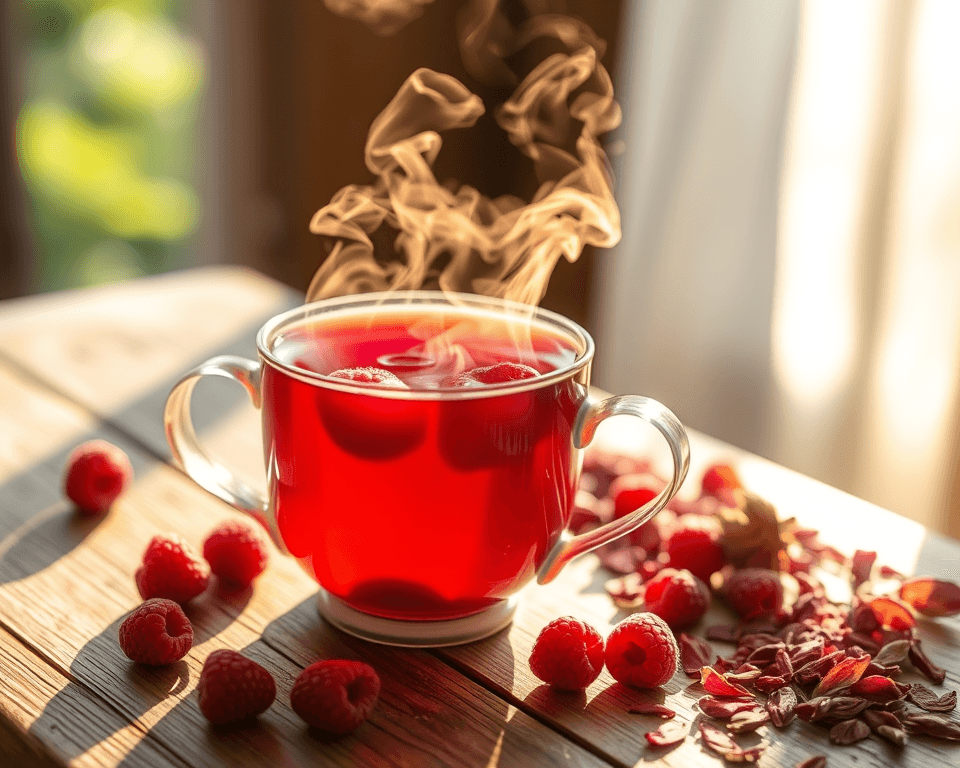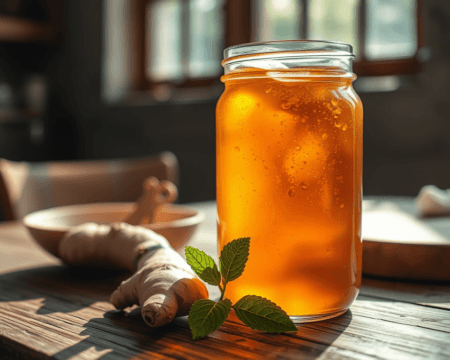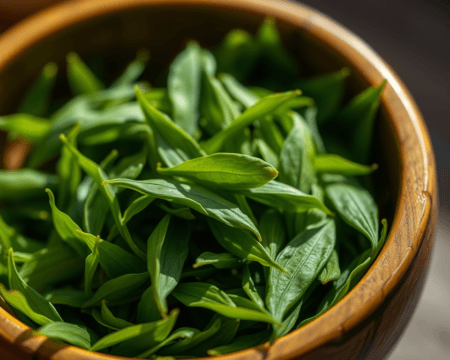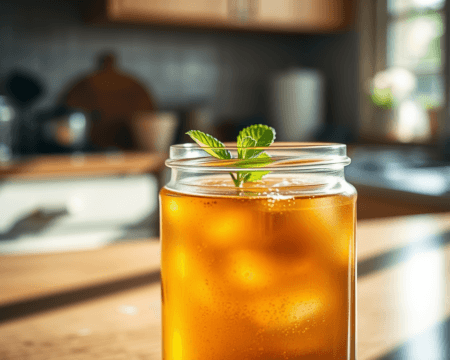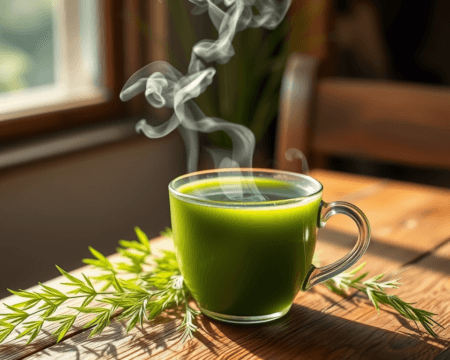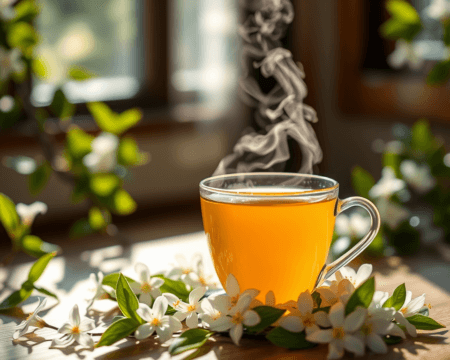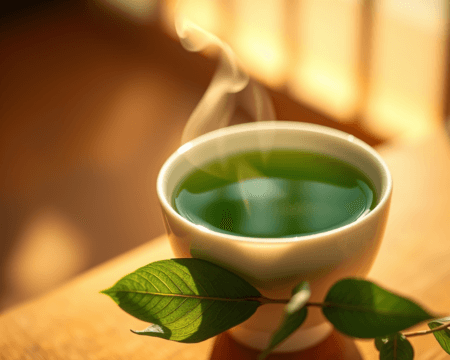It’s time to elevate your beverage game. If you’re not yet on the raspberry hibiscus tea train, get ready to hop on. This herbal delight isn’t just a pretty face with its vibrant color; it’s packed with health benefits, versatile uses, and a cultural richness that’ll give you instant street cred among tea aficionados. Grab your favorite mug because we’re about to explore why raspberry hibiscus tea might just be the MVP of your daily health routine.
Key Takeaways
- Raspberry hibiscus tea boasts a powerhouse of antioxidants and essential vitamins, contributing to overall wellness.
- Scientific studies reveal significant anti-inflammatory properties and health benefits that can enhance your quality of life.
- Discover a variety of creative recipes that boost hydration, flavor, and nutritional value.
- Users report not only delightful taste experiences but also personal health improvements with regular consumption.
- Be aware of potential side effects and interactions, especially if you’re on medication.
Understanding the Health Benefits of Raspberry Hibiscus Tea
Nutritional Profile Overview
When I first stumbled upon raspberry hibiscus tea, I was blown away by its nutritional value. This tea is more than just a refreshing drink; it’s a nutrient-packed treasure trove.
Raspberry hibiscus tea is rich in vitamins and minerals like Vitamin C, which is vital for immune function. It combines the antioxidants from hibiscus with the health-promoting compounds found in raspberries. Here’s how it breaks down:
- Antioxidants: These bad boys combat oxidative stress in your body, thanks to the presence of anthocyanins and vitamin C.
- Micronutrients: Get ready for a boost in essential micronutrients like magnesium, calcium, and potassium, all of which contribute to cardiovascular health.
- Phytonutrients: The unique compounds in hibiscus offer numerous herbal benefits, such as supporting healthy blood pressure and cholesterol levels.
So next time you sip on this vibrant brew, remember you’re not just enjoying a drink; you’re fueling your body with goodness.
Scientific Research on Health Benefits
Let’s talk research and the science behind the claims. Several clinical trials have investigated the effectiveness of hibiscus tea, focusing on its anti-inflammatory properties. One study published in the Journal of Nutrition found that daily consumption of hibiscus tea could lower blood pressure levels, making it a stunning option for heart health.
Another piece of research highlighted the biochemical compounds in hibiscus that have shown potential in reducing cholesterol levels and improving liver health. If that’s not enough to get your attention, some studies even point to its role in aiding weight management.
The evidence is stacking up—hibiscus isn’t just a cute flower; it’s a powerhouse of health benefits.
Unique Ways to Use Raspberry Hibiscus Tea
Recipe Ideas for Raspberry Hibiscus Tea
Thinking about how to incorporate this herbal delight into your routine? Let’s talk recipes! The good news is that raspberry hibiscus tea is about as versatile as you can get, allowing for both classic brews and creative concoctions.
Picture this: a hot cup of raspberry hibiscus tea in the morning to kickstart your day, followed by a refreshing iced version in the afternoon for a hydration boost. Here’s how you can whip up these beverages:
Hot Raspberry Hibiscus Tea: Steep 1-2 teaspoons of dried hibiscus and raspberry leaves in boiling water for about 5-7 minutes. Enjoy it straight or with a drizzle of honey for added sweetness.
Iced Raspberry Hibiscus Refreshers: Brew a strong batch of hibiscus tea. Once cooled, mix with your favorite lemonade or sparkling water for a zesty, refreshing drink. Perfect for those hot summer days or whenever you need a little pick-me-up.
Want to take it up a notch? Consider mixing it into smoothies or using it as a base for your favorite cocktail. The possibilities are endless, and it’s a delightful twist that won’t let you down.
Cultural Significance and Traditional Uses
Raspberry hibiscus tea isn’t just a modern-day beverage. Its roots run deep within many cultures across the globe. Historically, hibiscus has been celebrated as a natural remedy and a staple in traditional remedies.
In countries like Egypt, hibiscus tea has been consumed for centuries, revered for its cooling properties in the sweltering heat. They’re not just sipping it for the taste—it’s part of their very culture. In West Africa, it’s known as “Bissap” and served at celebrations and gatherings, showcasing its deep-seated cultural practices.
This tea doesn’t just quench thirst; it also serves as a bridge connecting us to traditions, health customs, and social gatherings that span continents.
Comparisons with Other Herbal Teas
Health Benefits Comparison
Alright, plant-based lovers, let’s pit our tart friend against some contenders in the herbal tea ring. How does raspberry hibiscus stack up against other popular teas like chamomile or green tea?
On one end, you’ve got chamomile, which is renowned for its ability to promote relaxation and combat insomnia. Yes, it’s a fantastic sleep aid, but it doesn’t bring the same punch of antioxidants that hibiscus does. When you home in on health benefits, hibiscus takes the cake with its capacity to lower blood pressure and combat free radicals.
Green tea, often lauded for its weight loss properties and high levels of EGCG, is a powerful contender. Still, raspberry hibiscus tea gives it a run for its money with its unique blend of fruity flavors and protective properties. The game is all about balance; hibiscus tea excels when it comes to hydration and heart health, proving time and again that it’s not just a pretty drink.
Flavor Profiles and Preparation Methods
Let’s chat about the heart of the matter—flavor. Raspberry hibiscus tea is not only a visual treat; it’s packed with flavor characteristics that make it irresistible. The tartness of hibiscus plays beautifully with the sweet nuances of raspberries, creating a symphony of flavors that dance on your taste buds.
When it comes to preparation methods, brewing this tea is straightforward. Use hot water for a deep infusion, and if you’re going for something refreshing, use cold water for a gentler extraction. That’s right; you can cold brew it.
Feeling adventurous? Experiment with infusions. Add slices of fresh ginger for a spicy kick or mint leaves for a refreshing twist. Get creative and notice how the flavor evolves—trust me, it’s a game-changer.
Potential Side Effects and Contraindications
Recognizing Possible Risks
I know what you’re thinking—there’s got to be a downside, right? Well, like any other herbal remedy, raspberry hibiscus tea comes with its potential side effects.
While most people thrive on it, some may experience allergic reactions or stomach upset; this is especially true for those with sensitivities. If you’re on medications, especially those for high blood pressure or diabetes, it’s crucial to consult with your healthcare provider. Interaction with these meds can lead to unexpected changes in blood pressure levels—a serious safety concern you shouldn’t overlook.
Personal Experiences and Anecdotes
Hearing stories from fellow tea lovers is like sipping a hot cup of nostalgia. Many people have reported surprising health benefits after incorporating raspberry hibiscus tea into their routines. From lower blood pressure to glowing skin, the anecdotes are powerfully persuasive.
Users rave about how they felt more hydrated during workouts or noticed a significant boost in energy levels throughout the day. One friend of mine swore by its soothing effects during stressful times, using it as her go-to beverage for a night of relaxation. Community feedback like this is valuable—often, it reveals insights that scientific studies can’t capture.
If you’re looking for a tea that tickles your taste buds while offering a treasury of health benefits, raspberry hibiscus tea is sure to fit the bill. Whether you want to sip it for its flavors, enjoy its cultural significance, or boost your health, this herbal option is more than worthy of your attention. It’s all about finding your rhythm with this vibrant brew and enjoying every drop.
Frequently Asked Questions
What are the health benefits of raspberry hibiscus tea?
Raspberry hibiscus tea is rich in antioxidants and essential vitamins, offering potential benefits such as improved heart health, enhanced hydration, and relief from inflammation. Regular consumption may contribute positively to overall wellness and aid in managing certain health conditions.
Can raspberry hibiscus tea help with weight loss?
Raspberry hibiscus tea may aid weight loss efforts due to its natural diuretic properties, which can reduce water retention. Additionally, it is low in calories and can be a flavorful alternative to sugary drinks, supporting a healthier diet.
How often can I drink raspberry hibiscus tea?
Most people can safely enjoy 2-3 cups of raspberry hibiscus tea daily. However, it’s essential to listen to your body and, if you’re trying it for the first time or have health concerns, consult with a healthcare professional.
Are there any side effects of consuming raspberry hibiscus tea?
While raspberry hibiscus tea is generally safe, some individuals might experience mild side effects like stomach upset or headaches, especially if consumed in large quantities. If you are on medication or have existing health issues, consult your doctor before regular use.
Can I use fresh raspberries in my tea?
Absolutely! Adding fresh raspberries enhances the flavor and nutritional profile of your tea. They can be steeped with the hibiscus flowers or added as a refreshing garnish.
How should I store raspberry hibiscus tea?
To maintain freshness, store dried hibiscus flowers in a cool, dark place in an airtight container. Brewed tea can be refrigerated and consumed within 3-4 days for the best taste.
Is raspberry hibiscus tea safe during pregnancy?
While raspberry hibiscus tea is generally considered safe in moderate amounts, pregnant women should consult their healthcare providers due to the potential effects of hibiscus on blood pressure and uterine contractions.
Can I combine raspberry hibiscus tea with other herbs or teas?
Yes, raspberry hibiscus tea can be blended with various herbs and teas, such as mint or green tea, to create delicious and health-boosting infusions. Experiment with different combinations to find your favorite flavor profile.
What is the best way to brew raspberry hibiscus tea?
For optimal flavor, steep 1-2 teaspoons of dried hibiscus flowers in hot water (about 200°F) for 5-10 minutes. Adjust steeping time based on your taste preference—longer steeping produces a stronger flavor.




